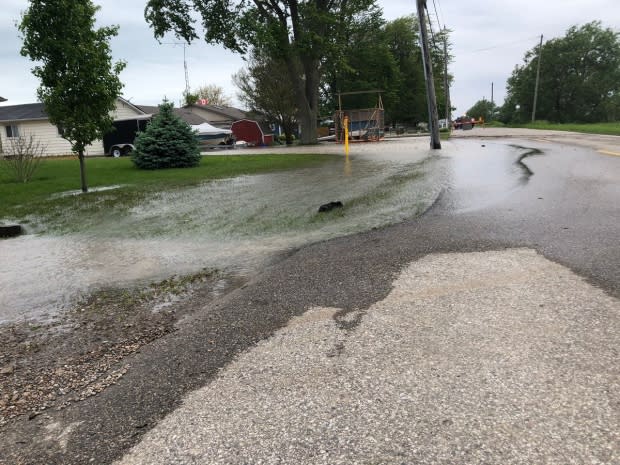Chatham-Kent declares climate emergency, asks community for solutions
As a way to highlight the ongoing issues of shoreline erosion and high water levels, Chatham-Kent has declared a climate emergency.
At Monday's council meeting, it was a unanimous vote with all 17 members of council in agreement. The climate emergency status allows Chatham-Kent to join a "national and international movement to provide a lens through which all strategy, politics, action-items and opportunities can be viewed," according to the motion.
"I didn't see it going 17 to nothing this evening," said Coun. Trevor Thompson. He expected more of a 10-7 vote on the motion he put forward. "We have an issue here that isn't going away."
Thompson said while it seems extreme, it's necessary — Chatham-Kent has lost three metres a year in shoreline due to erosion.
Part of the decision came from the early results of the Chatham-Kent Lake Erie Shoreline Study, a project set to wrap up in March 2020. Chatham-Kent worked with goesicentist Peter Zuzik to look at the Great Lakes shorelines, pushing Chatham-Kent to become a case study area for the Lake Erie section of the project. Public meetings have been held to discuss the study, which stretches from Wheatley to Clearville, including Rondeau Bay.
"The road to this point was seeing that this isn't a small fix. There's no short-term fix on this," said Thompson. "Millions of dollars are affected, potentially billions of dollars in public infrastructure."

Thompson said there were a lot of ways to go at a climate emergency — and a lot of stakeholders involved including agriculture, food, waste. He thinks that's why the motion was unanimously approved.
"We can make sure that what we're doing on a daily basis addresses the issues of climate change ... how do we build resiliency into the community," said Thompson.
There's no actual steps in place for what happens next, now that a climate emergency has been declared. Councillors have asked city staff to go back to their departments to come up with recommendations for immediate and long-term items.
"Now is the opportunity for these organizations to come to us and say 'Hey I have a plan,'" said Thompson. "Then we decide how to work with that. I'm looking forward to the community coming up with solutions."

